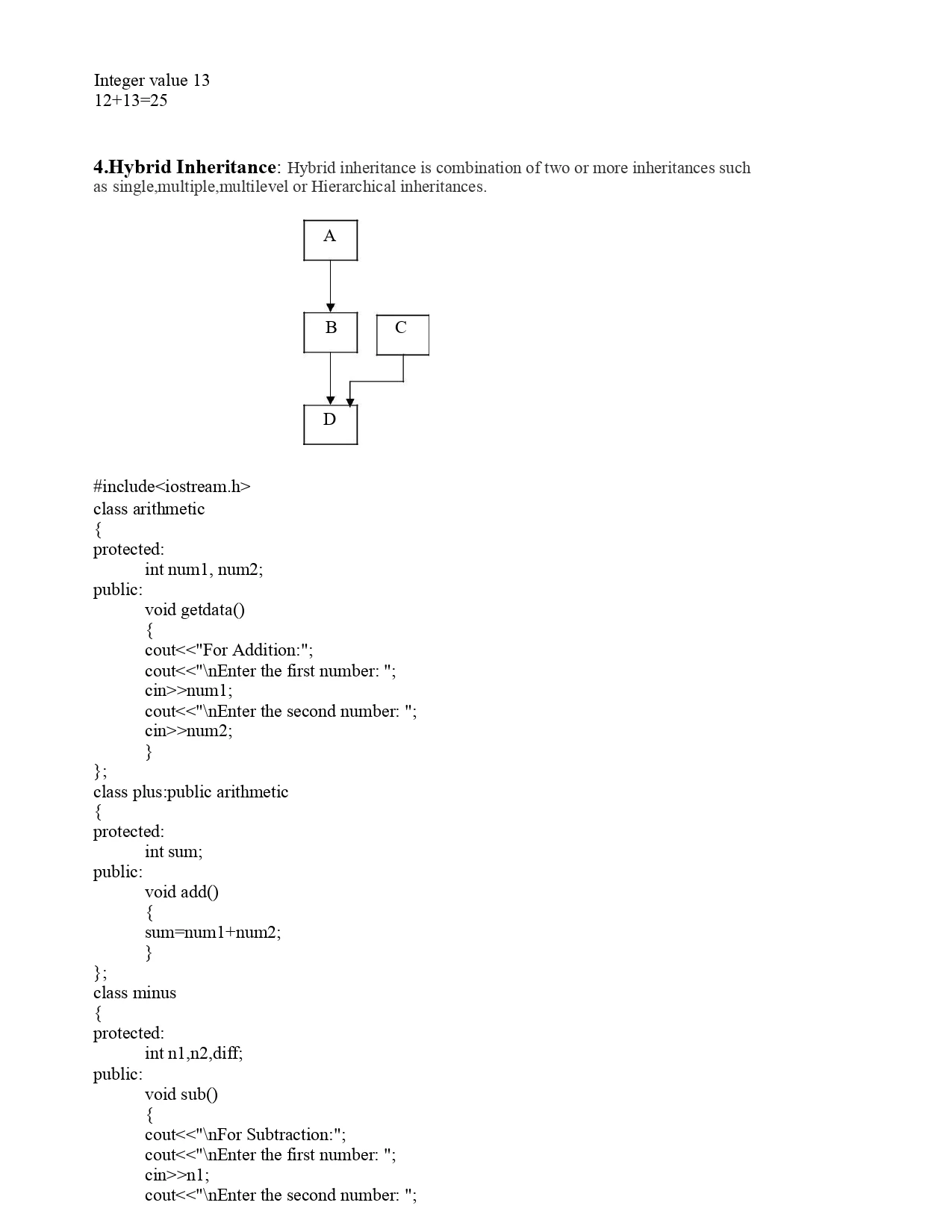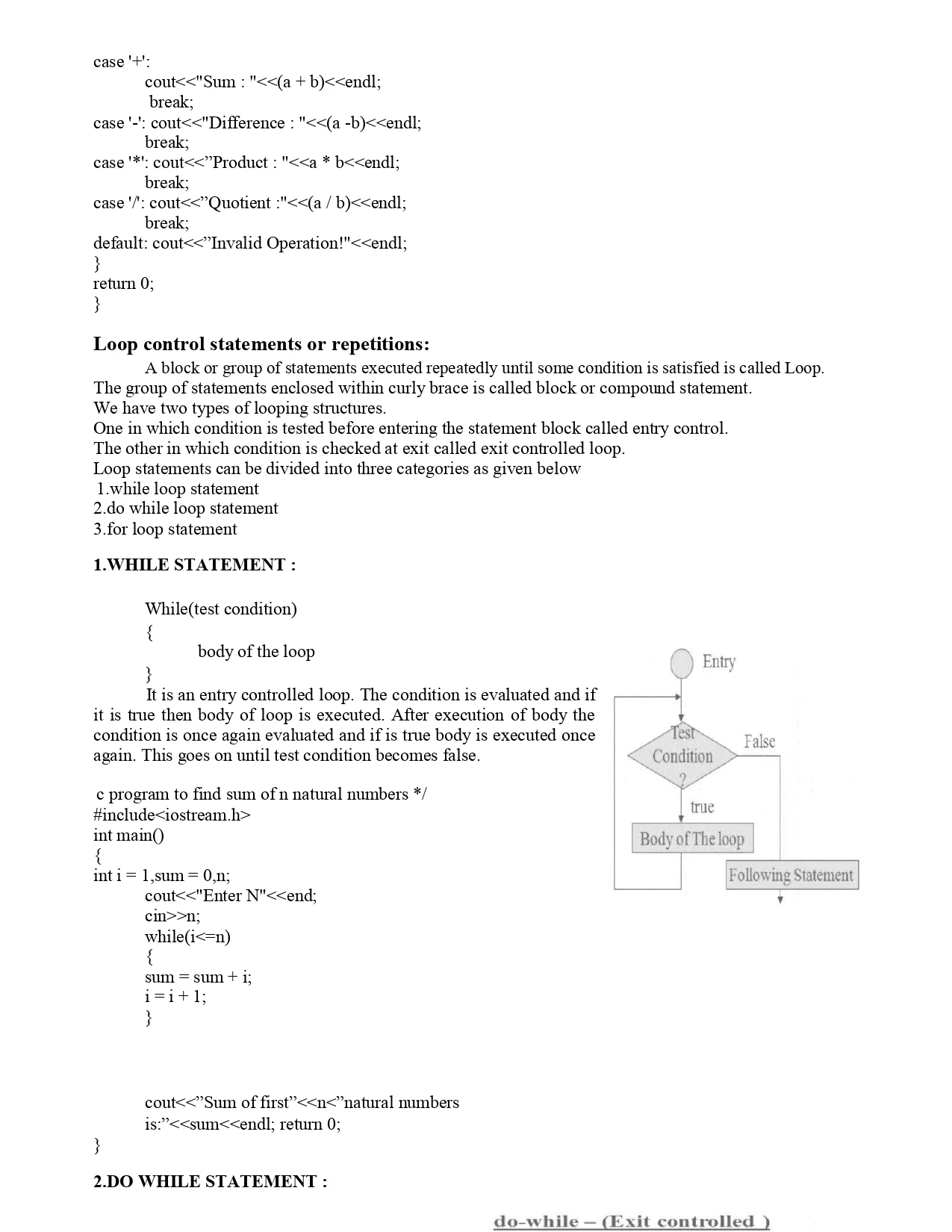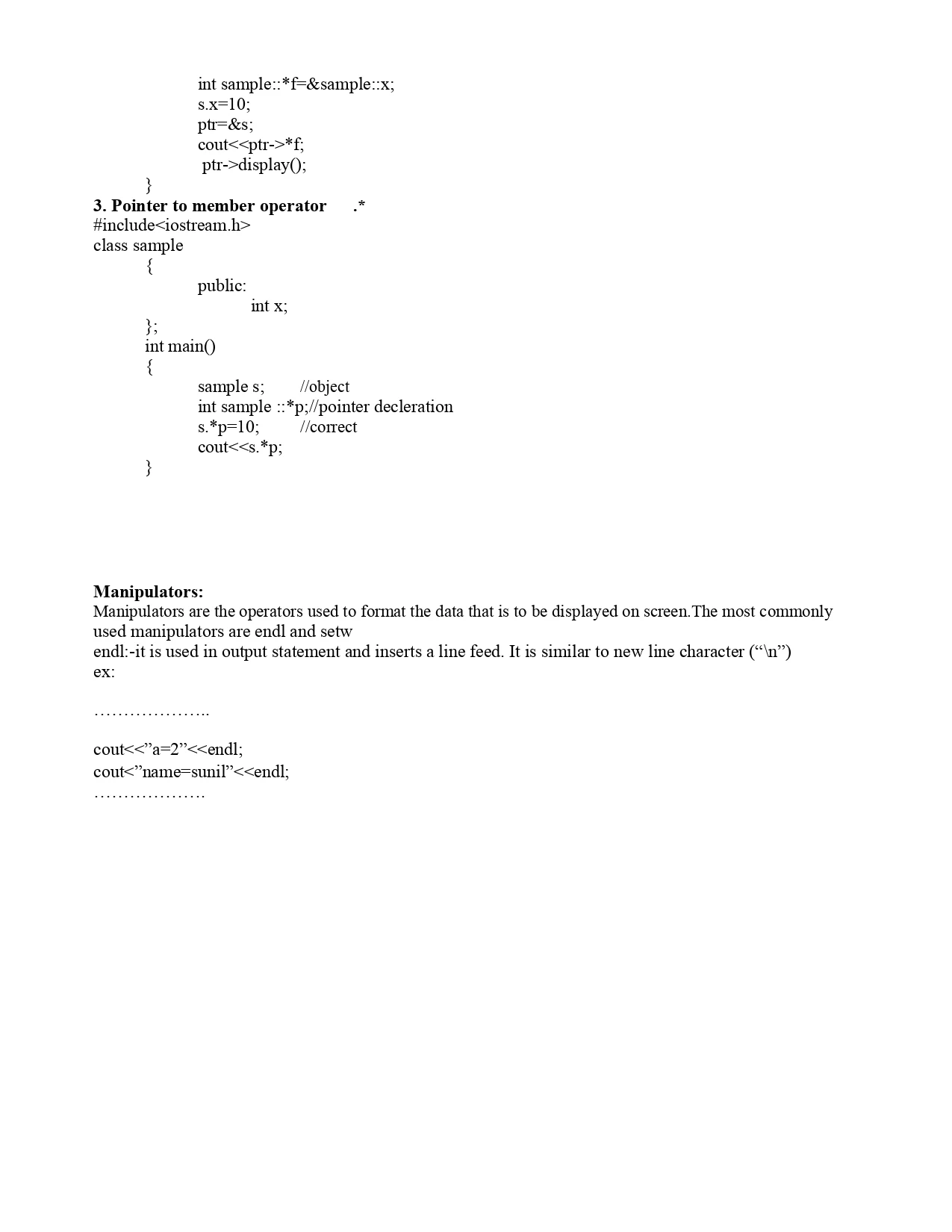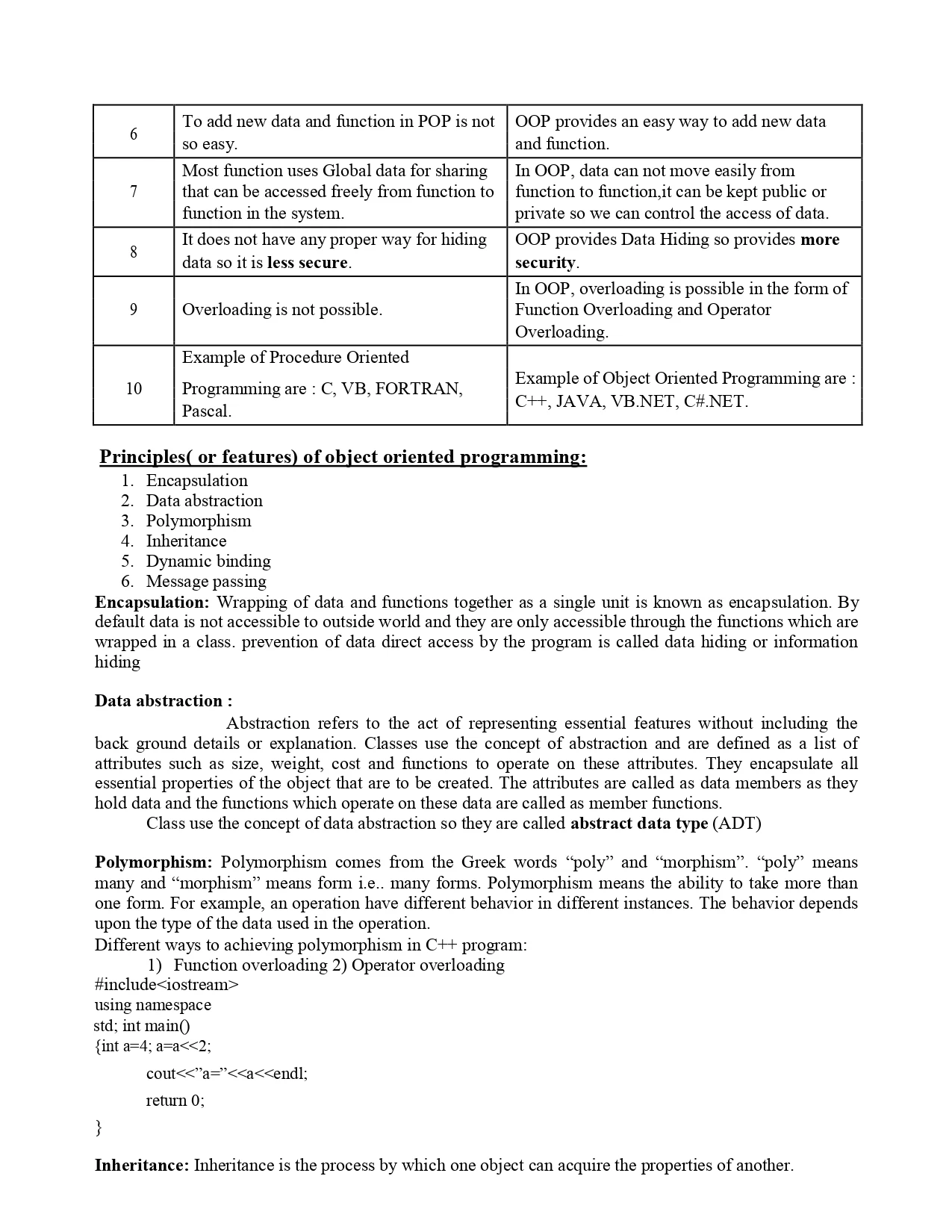
template and exception handling introduction class template class template with multiple parameter functions template function template with multiple parameter Member function templates
generic programming(Templates)

rethrowing an exception
specifying exception
general form
catch all exceptions
catching mechanism
multiple catch statements
exception handling
synchronous exceptions
synchronous exceptions
exception handling mechanism
function template with multiple parameters
function templates
class template with multiple parameters
templates are classified into two types - function template
- class template
the template declared for a classes are called class templates
--------------------------------------------------------------Unit 5--------------------------------------------------------------
write a program to over load arithametic operators on complex number using friend function
write a program to overload arithmetic operator on complex number using Member function
overloading binary operator using friends
Syntax for binary operator definition (outside the class)
binary operator overloading
Syntax for binary operator( inside a class)
unary minus operator using a friend function
it is possible to overload unary operator using a friend function as follows :
friend void operator-( space &S)
overloading unary operator in c++
unary operator overloading
Syntax for unary operator (inside a class)
Syntax for unary operator (outside a class)
General Form
concept of operator overloading
rules to be followed for operator overloading
overloading
operator overloadin
rules for virtual function
virtual function
runtime polymorphism using virtual function
Static and dynamic building
static linking
compile time polymorphism
early binding
Static Binding
pointer to derived classes
creating array of object using pointer
pointer to member operator
pointer to object
declareation of pointer
declaration of object and pointer to class item
member difference operator
pointer to member declare
pointer to member operator
pointer to member operator
unit 4 pointer virtual function and polymorphism
introduction to memory management
dynamic memory allocation and deallocation (new and delete)
new operator
delete operator
hierarchical inheritance
hybrid inheritance
multiple inheritance
multilevel inheritance
single inheritance
privately inherited
protected inherited
publicly inherited
types of inheritance
single
multilevel
multiple inheritance
hybrid inheritance
hierarchical inheritance
inheritance
colon
destructors
multiple constructors in a class
copy constructor
constructor are of three type
default constructor
parameter is constructor
copy constructor
 |























































































Comments
Post a Comment